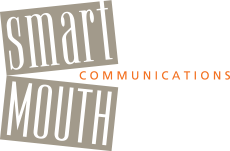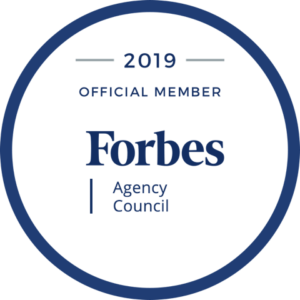What do I mean by that? Isn’t your topic the focal point? Uh uh. Your Focal Point is actually the “so what?” or the “what next?” It helps to set the context for your talk, so that your audience knows what’s coming, why, and where to focus.
Let’s back up a sec. In March, I blogged about “putting the engine back together” and offered a very simple structure for putting together a speech or presentation. And I suggested that if you have a desired outcome for your talk – if there is something you want your audience to think, or know, or do by the time they leave the room – you need to spell it out for them. Literally, tell them what you want them to pay attention to and/or what you want them to take away. This is a Focal Point, and I recommended opening with it as well as wrapping up with it in the closing.
We all agree that attention spans are short and, in fact, getting shorter, which makes figuring out how to reach audiences pretty urgent business. We all have had the experience of sitting through a talk and wondering what we’re supposed to know or do next, which means we know firsthand what it’s like to be lost, not “get it,” or feel like we might have wasted time. And we all know that when we’re clearly directed to focus on something, we’re surprisingly compliant and we’re likely to focus on that certain something. As speakers, we simply have a better chance of achieving attention and retention with audiences if we spoonfeed them.
A Focal Point can be your entire opening, or it can be woven in as just a part of your opening, but it is the call-out that tells your audience what you want them to think or know or do next. For example, “I was asked to speak with you today about personal money management [topic], and what I’m going to ask of you today, as I’m covering my material, is that you open your minds and be thinking about how you might eliminate just one of your debts starting tomorrow [focal point].” Or “We’re here today to commemorate the grand opening of this new blood donation center [topic], but the larger task at hand is that I need each and every one of you to be an ambassador when you leave here today, to go out there and spread the word [focal point].” Or “We have quite a lengthy list of agenda items to cover today [topic], but I would like to zip through those and get to the last one, which is the most important and where I’d like us to spend the bulk of our time [focal point].”
The Focal Point is big, it’s important, it requires some thinking on your part. But it’s worth it, your audience will actually “get it”!
- New Agey Advice for Nervousness - November 3, 2022
- Your Passion Can Go a Long Way Toward Building Connection - October 10, 2022
- Keep stage fright a private matter while you’re speaking on a public stage! - August 11, 2022



